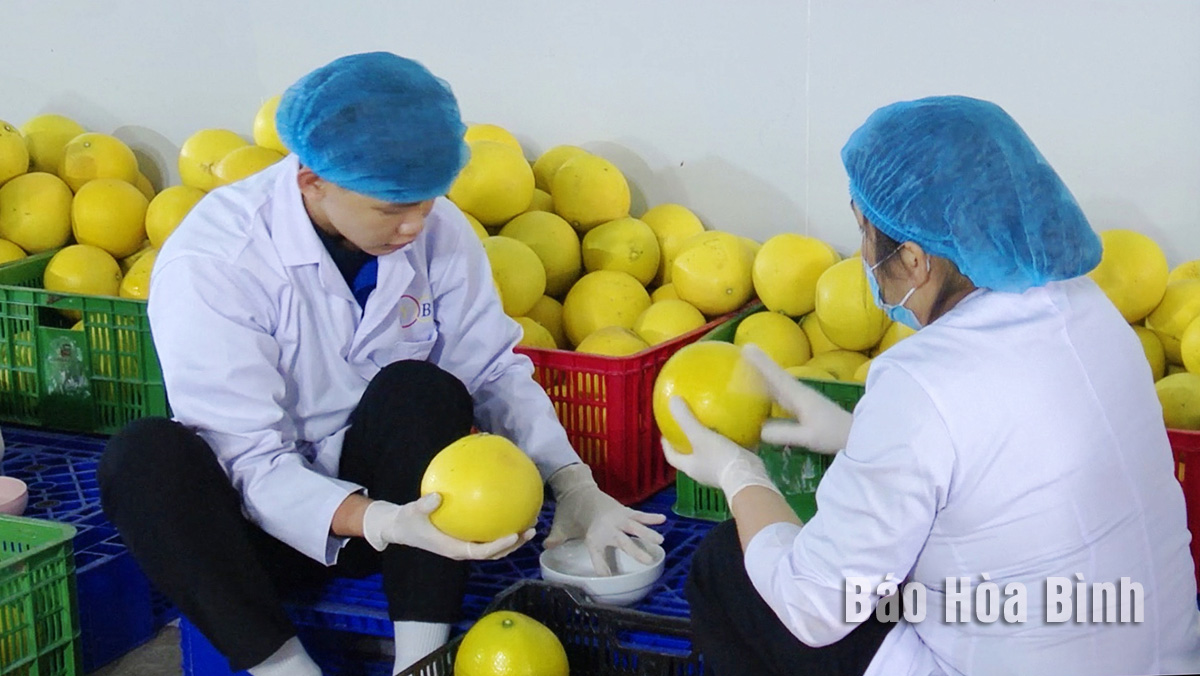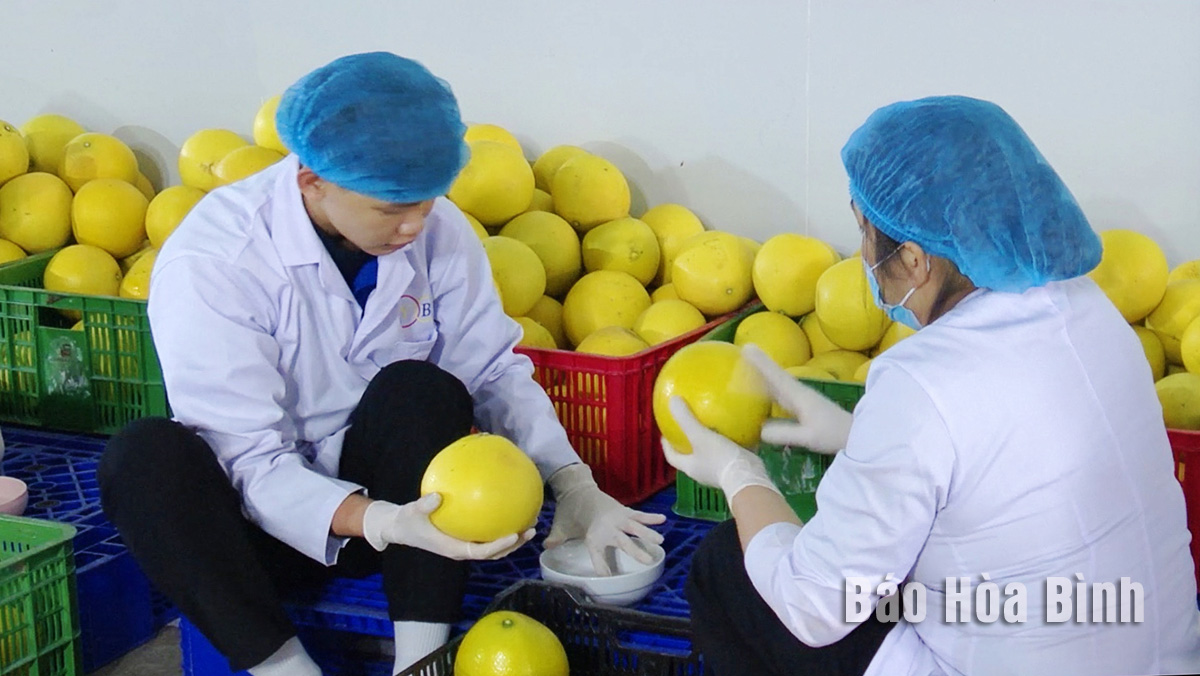
In 2024, key agricultural exports from Hoa Binh province are expected to continue, benefiting from growing demand. Several local products have been exported under international orders since the start of the year. The agricultural sector is working with local businesses and producers to ensure adequate supply for export, while also expanding the domestic market.
Ngoc Luong commune in Yen Thuy, known for its pomelo cultivation, was the first in the province to export Dien pomelos to the UK.
Kim Boi JSC, based in Lac Thuy, leads in exporting processed
bamboo shoots and related products. In 2023, the company exported over 430
tonnes of fresh and processed bamboo shoots, pickled vegetables, and other
items, generating 20.1 billion VND (816,000 USD). The company aims to meet
Halal standards and explore new markets, particularly in the Middle East.
Ngoc Luong commune in Yen Thuy, known for its pomelo cultivation, was the first
in the province to export Dien pomelos to the UK. Local farmers are now
focusing on pest control to maintain fruit quality for both domestic and
international markets. Yen Thuy district is working to increase the export
quality of its pomelos to contribute 50-70% to the province’s export volume.
The province has established key agricultural areas for export, supported by
policies and investments. Currently, 46 planting areas covering nearly 390
hectares have been certified for export, along with five approved packing
facilities. This has enabled the export of products such as tea, bamboo shoots,
pomelos, bananas, and pickled vegetables to markets like Japan, Taiwan (China),
the Czech Republic, and the US.
Despite a strong start to 2024, global market fluctuations have posed
challenges. Local authorities are working to ensure sustainable production,
enhance product quality, and support businesses in navigating challenges in
both existing and new markets. Enterprises must also be proactive in managing
risks and adapting to changing market conditions to sustain growth.
According to data from the Hoa Binh Provincial Party Committee, the industrial production index for the first six months of 2025 is estimated to have increased by 20% compared to the same period last year. This marks the highest year-on-year growth rate for this period since 2020.
In the first six months of 2025, Hoa Binh province’s export turnover was estimated at 1.145 billion USD, marking an 18.11% increase compared to the same period in 2024. Import turnover was estimated at $ 804 million, a 17.15% increase, which helped the province maintain a positive trade balance.
The lives of the ethnic minority farmers in Tan Lac district have gradually improved thanks to the new directions in agricultural production. This is a testament to the collective strength fostered through the professional associations and groups implemented by various levels of the district’s Farmers’ Union.
With the motto the "product quality comes first,” after nearly one year of establishment and operation, Muong village’s Clean Food Agricultural and Commercial Cooperative, located in Cau Hamlet, Hung Son Commune (Kim Boi district), has launched reputable, high-quality agricultural products to the market that are well-received by consumers. The products such as Muong village’s pork sausage, salt-cured chicken, and salt-cured pork hocks have gradually carved out a place in the market and they are on the path to obtaining the OCOP certification.
In the past, the phrase "bumper harvest, rock-bottom prices" was a familiar refrain for Vietnamese farmers engaged in fragmented, small-scale agriculture. But today, a new spirit is emerging across rural areas of Hoa Binh province - one of collaboration, organisation, and collective economic models that provide a stable foundation for production.
Maintaining growing area codes and packing facility codes in accordance with regulations is a mandatory requirement for agricultural products to be eligible for export. Recently, the Department of Agriculture and Environment of Hoa Binh province has intensified technical supervision of designated farming areas and packing facilities to safeguard the "green passport" that enables its products to access international markets.



